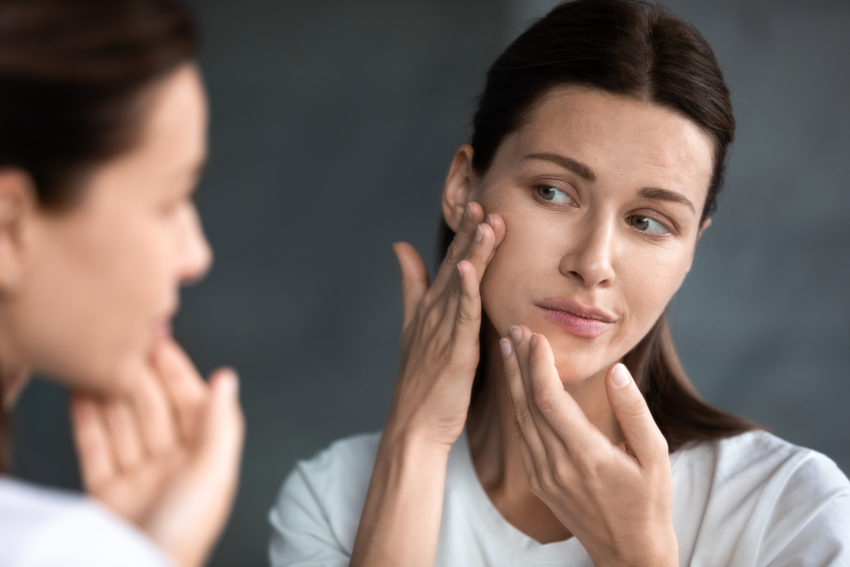Buy Isotretinoin Online commonly known by its brand name Accutane, is a potent medication used primarily for the treatment of severe acne. It belongs to a class of drugs called retinoids and works by reducing the production of sebum (skin oil) and preventing the clogging of hair follicles, which are primary contributors to acne development. While isotretinoin’s effectiveness in treating acne is well-established, its effects on hormone levels have been a topic of interest and investigation. In this discussion, we’ll explore the impact of isotretinoin treatment on various hormones, including androgens, thyroid hormones, and others.
Androgens and Isotretinoin
Androgens, a group of hormones including testosterone and dihydrotestosterone (DHT), play a crucial role in acne development. Increased androgen levels can lead to excess sebum production and contribute to acne formation. Isotretinoin is known to affect androgen levels, particularly by reducing the activity of 5-alpha-reductase, an enzyme responsible for converting testosterone into DHT.
Studies have shown that isotretinoin treatment can lead to a decrease in serum levels of androgens, including testosterone and DHT. This reduction in androgen levels correlates with the medication’s ability to decrease sebum production and improve acne severity. However, the exact mechanisms through which isotretinoin affects androgen levels are still not fully understood and require further research.
Thyroid Hormones and Isotretinoin
Thyroid hormones, including thyroxine (T4) and triiodothyronine (T3), play a crucial role in regulating metabolism, energy levels, and overall hormonal balance in the body. Some studies have suggested a potential link between isotretinoin treatment and alterations in thyroid hormone levels.
Research findings regarding the effects of isotretinoin on thyroid hormones have been mixed. While some studies have reported changes in thyroid hormone levels during Buy Accutane Online therapy, others have found no significant impact. The variability in results could be attributed to factors such as the duration of treatment, dosage, individual differences in hormone metabolism, and underlying thyroid conditions in study participants.
Insulin and Glucose Metabolism
Isotretinoin has also been investigated for its potential effects on insulin sensitivity and glucose metabolism. Insulin resistance and impaired glucose tolerance are common in individuals with acne and may contribute to the development of inflammatory skin conditions.
Several studies have examined the relationship between isotretinoin treatment and markers of insulin sensitivity, such as fasting blood glucose levels, insulin levels, and insulin resistance indices. While some studies have reported improvements in insulin sensitivity following isotretinoin therapy, others have found no significant changes.
The mechanisms underlying any potential effects of isotretinoin on insulin and glucose metabolism remain unclear. Further research is needed to elucidate the impact of isotretinoin on these metabolic pathways and its clinical significance in individuals undergoing acne treatment.
Cortisol Levels and Stress Response
Cortisol, often referred to as the stress hormone, plays a vital role in the body’s response to stress and helps regulate various physiological processes. Acne severity can be influenced by stress levels, as stress triggers hormonal changes that may exacerbate acne symptoms.
Some studies have explored the relationship between isotretinoin treatment and cortisol levels or stress response. While the direct effects of isotretinoin on cortisol levels are not well-established, improvements in acne severity and psychological well-being during isotretinoin therapy may indirectly impact stress levels and cortisol regulation.
Growth Hormone and IGF-1
Growth hormone (GH) and insulin-like growth factor 1 (IGF-1) are hormones involved in growth, development, and tissue repair. IGF-1 has been implicated in the pathogenesis of acne, as elevated levels can stimulate sebum production and contribute to acne formation.
Research on the effects of isotretinoin treatment on GH and IGF-1 levels is limited. Some studies have suggested a potential decrease in IGF-1 levels following isotretinoin therapy, which may contribute to improvements in acne severity. However, more research is needed to fully understand the interplay between isotretinoin, GH, IGF-1, and acne development.
Conclusion
In conclusion, isotretinoin treatment can impact hormone levels in the body, particularly androgens, thyroid hormones, insulin sensitivity, and potentially other hormones involved in metabolic and physiological processes. While isotretinoin’s primary mode of action in acne treatment is through its effects on sebum production and follicular keratinization, its influence on hormone levels may contribute to its overall therapeutic effects.
It’s essential to note that the effects of isotretinoin on hormone levels can vary among individuals and may be influenced by factors such as treatment duration, dosage, pre-existing hormonal conditions, and individual differences in hormone metabolism. Healthcare providers prescribing isotretinoin monitor patients for any potential hormonal changes and adjust treatment as needed to ensure optimal therapeutic outcomes while minimizing potential side effects.

